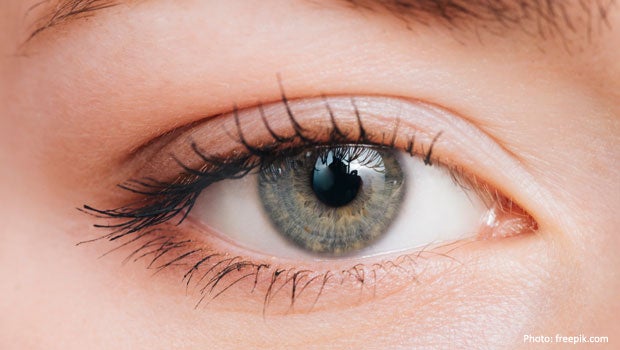
Skipping treatment may lead to loss of sight in those with severe form of age-related macular degeneration: Study
Skipping or postponing medical appointments amid the Covid-19 pandemic may be common, but for people with a severe form of age-related macular degeneration (AMD), doing so may lead to vision loss.
Doctors at the Singapore National Eye Centre (SNEC) say poor adherence to treatment is a worldwide phenomenon, but there is further proof that doing so can lead to vision loss.
SNEC did a study, published late last year in the journal Ophthalmology Retina, that "conclusively demonstrated that adherence to timely retreatment is important to help preserve patients' vision", said its lead author, Professor Gemmy Cheung, a senior consultant and head of SNEC's medical retina department.
"It is well established that with anti-VEGF (anti-vascular endothelial growth factor) injections, vision decline can be halted in about 95 per cent of the patients, as long as adequate retreatment is given," she said, referring to the drugs that need to be injected right into the eye to block the growth of abnormal blood vessels.
SNEC's study had looked at how 364 patients with AMD, or a subtype known as polypoidal choroidal vasculopathy that is common with Asians, fared with anti-VEGF therapy over a one-year period.
The local study also suggested that the patients here sought help later than those elsewhere, as they had relatively poorer vision when they did so.
AMD is a leading cause of vision loss among seniors worldwide. It can start to affect people as young as in their 40s, though most cases occur in those aged above 70.
Most AMD patients have dry AMD, a form that has no effective treatment but progresses slowly.
The rest - about 10 per cent - have the severe form known as wet AMD, which can lead to rapid and severe vision loss, but it can be treated.
Nevertheless, even before the Covid-19 pandemic, not all patients came for their treatments.
Dr Kelvin Teo, a consultant at the medical retina department at SNEC, said these patients, who are mostly seniors, may find it challenging to keep up with the frequent treatments.
"They need six to eight injections a year on average, but about 30 per cent of them would bargain with us to come in less," he said.
Dr Teo said some patients found that the injections would give them red eyes for a day and did not like it.
During the circuit breaker period, SNEC piloted a smartphone tool to aid the self-monitoring of AMD, and had more than 800 sign-ups, of which five needed medical help.
SNEC, he said, has since contacted "over 150 patients with active disease who have defaulted, to ensure they returned for their treatments".
The issue with the anti-VEGF injection therapy is that it needs to be delivered right into the eyeball, which some patients may find harrowing.
Anti-VEGF drugs are also expensive, ranging from a few hundred dollars to more than $1,500 a jab.
"We can't put a lot of it in there," said Prof Cheung, referring to each injection. "It's like going to the petrol station."
On average, a patient will need eight to 12 treatments in the first year of the disease in order to achieve the best outcome, as the efficacy of each injection is estimated to last for only four to six weeks, she said.
After that, most patients can maintain their vision with fewer treatments in a year, she said.
Prof Cheung, who is also head of the retina research group at the Singapore Eye Research Institute, said patients who are not able to keep up with the frequent treatments will usually experience a decline in their vision eventually, as the reactivation of the disease is common.
"At first, the person with the disease will find that there's 'a little bit of blocking' in the middle of his vision," she said.
"If that's not treated, the black blob will grow bigger and bigger, blocking his central vision."
Dr Teo said patients will experience straight lines appearing wavy as the first symptom of a new onset of wet AMD. Alterations or the blocking of central vision may also occur, he said.
The injections can help slow the rate of vision decline or stop further vision loss. "In some cases, treatment also improves vision by reducing the waviness or visual alteration," said Dr Teo.













 Get it on Google Play
Get it on Google Play